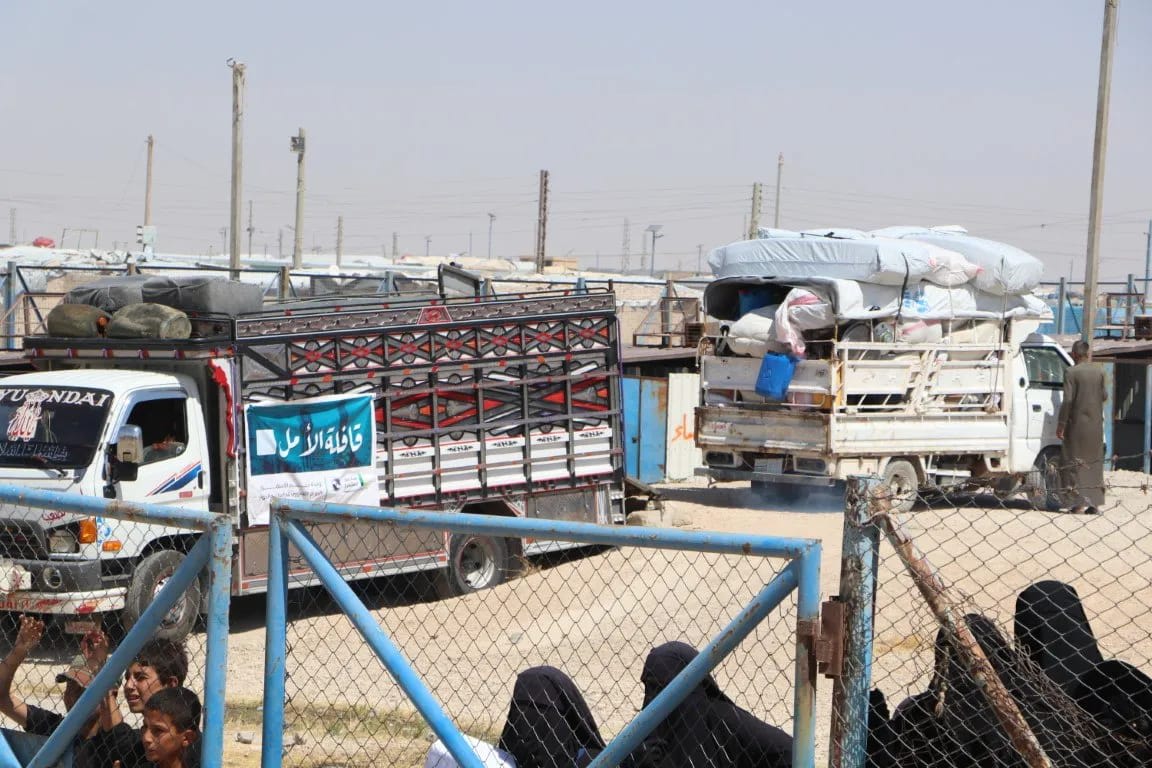"The convoy of hope" transports 178 displaced people from Al-Hol camp to Aleppo as part of a UN-supported voluntary return.

Today, on June 15, a group of 178 displaced persons, including individuals with chronic illnesses and special humanitarian cases, left the Al-Hol camp in rural Al-Hasakah heading to Aleppo as part of the "Caravan of Hope" initiative implemented by the Autonomous Administration in cooperation with local and international organizations.
The operation involved the participation of several entities, including the camp administration, the Autonomous Administration, the Syrian Center for Research and Studies, and the Stability Support Unit in Aleppo, with direct support from the UNHCR.
The Co-President of Al-Hol camp, Jihan Hannan, stated in an official statement that this step is in compliance with the decision of the Autonomous Administration issued on January 23, 2025, allowing Syrian refugees to return to their original areas "completely voluntarily, without any pressure or coercion."
The preparations for this batch took more than three months, during which coordination was made with the UNHCR through its branches in Damascus and Qamishli, in addition to several local organizations operating in northern Syria. The statement emphasized that priority in this phase was given to individuals facing difficult health conditions and urgent humanitarian needs.
The camp administration highlighted ongoing coordination with relevant authorities to ensure a safe and dignified return for the displaced persons, while emphasizing respect for their free will and dignity.
In a related context, the Syrian Arab Red Crescent in Al-Hasakah continues to provide medical and relief services, especially through the camp hospital operated in partnership with the International Committee of the Red Cross.
According to the Chairman of the branch's board of directors, Khedr Muttalq Al-Zahir, the hospital provided thousands of medical services during 2024, including physiotherapy sessions, surgeries, prosthetic fittings, as well as psychological support sessions, laboratory tests, and dental treatments.
He also mentioned the continued operation of the ambulance unit and the new clinic in Al-Hasakah city, aiming to expand the scope of medical services in the region.
The camp currently hosts around 11,000 displaced persons, distributed among approximately 2,100 families, most of whom are from eastern Syria, which witnessed displacement due to battles against ISIS or due to security and humanitarian conditions in recent years.